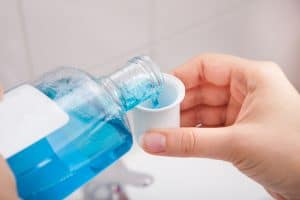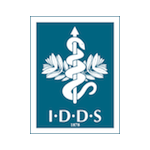 Who doesn’t love that minty taste that comes from a swig of mouthwash? Not only does it refresh the palate, but it may also contain different health benefits. Look at the label of your favorite mouthwash and you’ll probably discover that it’s a teeth whitener or plaque zapper. But are these claims true? Is your mouthwash really good for your overall oral hygiene?
Who doesn’t love that minty taste that comes from a swig of mouthwash? Not only does it refresh the palate, but it may also contain different health benefits. Look at the label of your favorite mouthwash and you’ll probably discover that it’s a teeth whitener or plaque zapper. But are these claims true? Is your mouthwash really good for your overall oral hygiene?
Before you crack the seal on your new bottle of oral rinse, see below for a list of pros and cons of using mouthwash:
The Pros:
- Reduce cavities: Rinsing with a fluoride rinse can help reduce cavities.
- Ward off gum disease: When someone suffers from gingivitis, the gums and tooth sockets can get inflamed or even infected. Using an antibacterial mouthwash, like one with chlorhexidine may help prevent periodontal disease.
The Cons
Mouthwash is not a cure all by any means. In fact, there are situations when it should be avoided:
- Canker sore irritant: If you suffer from canker sores, reaching for your favorite mouthwash may cause more harm than good.
- Mask an underlying problem: Chronic bad breath is often a precursor for an underlying dental issue. Rinsing with mouthwash will not alleviate severe halitosis; it only masks the problem.
If you’re not sure which what type of mouthwash best suits you, think about your current dental hygiene needs. If your goal is fresher breath, you can ask your dentist, family or even friends for suggestions.
Most mouthwashes come in various flavors like mint and cinnamon. You may also opt for mouthwash that is specifically formulated to control plaque or kill bacteria.
Keep in mind that rinsing with mouthwash without brushing is like mopping a floor without sweeping it first. The only way to remove plaque and tartar is to follow a proper dental regimen. Even though it’s best to brush after every meal, it’s also perfectly okay to brush and rinse every morning and night before going to sleep.
The Bottom Line
Mouthwash should not be used as a substitute for proper dental hygiene. Even if it’s helpful is reducing the risk of cavities and periodontal disease, it needs to be used in conjunction a proper oral hygiene regimen and regular dental checkups.







